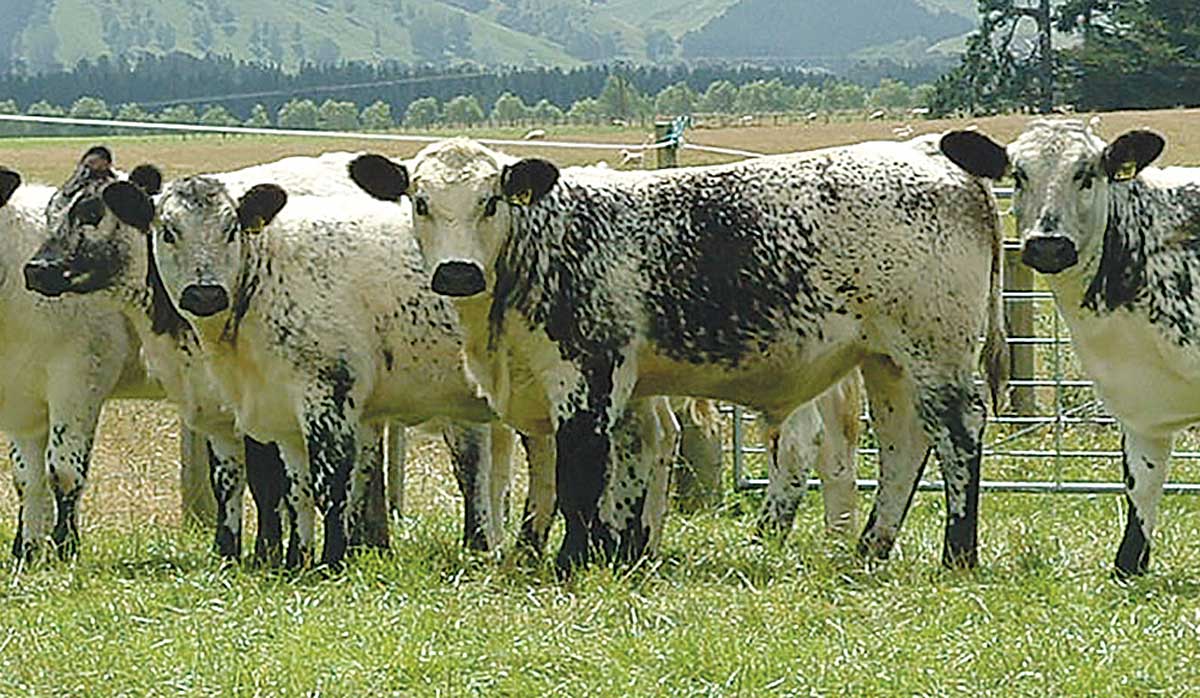2024/25 Dairy Statistics: NZ dairy farmers boost production with fewer cows
According to the New Zealand Dairy Statistics 2024/25 report, New Zealand dairy farmers are achieving more with fewer cows.
In what is a significant shift forward in the animal welfare space, dairy farmers are more focused than ever on reducing the number of bobby calves leaving their properties.
This coincides with a more targeted approach to artificial breeding (AB), with farmers being more selective about which cows they’re choosing to mate to elite dairy bulls.
After all, when the average difference in milksolids production between the top and bottom quarters of the herd is 160 kgMS/cow, some serious questions hang over any decision to retain replacements from the herd’s bottom end.
So when she’s not going to produce a calf worth keeping, and a reduction in bobby calves can be achieved, progressive dairy farmers are thinking beef.
The ideal synergy is to reduce the number of bobby calves while increasing the value of the calves born – calves must be profitable and saleable, and born with minimal risk to the cow.
LIC believes beef sales are set to increase significantly over the next decade.
With many farmers sharing this view, it’s a natural progression for the cooperative to complement its strong dairy offering by providing quality beef options.
The recent dairy market shift in understanding that “beef isn’t just beef” means dairy farmers are looking for genuine value-add in their beef genetics.
The intent of LIC’s beef offering is to deliver value-add in several forms, be it short gestation length, striking coat colours, rapid growth to weaning age/finishing age, or the ability to lock in contracts.
LIC has aligned itself with trait and breeds leaders in the beef space to ensure that the beef genetics offered will tick the boxes for our dairy farmers and maintain appeal to the beef finisher.
LIC is proud to say it now offers its widest-ever variety of beef options, providing all types of dairy farmers the opportunity to diversify their revenue streams while taking a more targeted approach at mating time.
Speckle Park, the Profit Maker composite, Wagyu, and Simmental were just a few of the breeds that in 2020 will share the limelight with the traditional Hereford and Angus duo.
Speckle Park are polled, medium frame (mature cow 650-800kg and mature bull 1000-1200kg), early maturing and possess an incredible yielding carcass. Weight gains are impressive and target 18 month markets. The Speckle Park breed has a high marbling yet perfect fat covering, with quality, fine, tender-eating meat.
Understanding the differences between the breeds is key, and farmer selection for breed should always come back to the desired outcome.
Some breeds may suit one farm system better than others. Factors such as herd size, breed, staff, the ability to take the beef-cross calves through to slaughter – or at what age the farm might opt to sell instead – all have a bearing on the decision the farmer will make.
 |
|---|
|
An example of LIC’s wider range of beef options include Speckle Park. |
Beef selection index
New Zealand dairy farmers are fortunate to have an Animal Evaluation system that compares dairy animals across breeds (in that you can compare a Jersey to a Friesian on the same scale, for example).
In New Zealand’s beef industry, between-breed comparisons have traditionally not been possible, making it difficult for dairy farmers to select the best beef genetics for their dairy cows.
However, the situation is set to change: Through ongoing collaboration with Leachman Cattle of Colorado, and Rissington Cattle Company in the Hawke’s Bay, LIC is marketing a Beef Selection Index (BSI), designed to help dairy farmers choose the best beef bulls across breeds, with specific focus on traits that appeal to both the dairy farmer and the beef farmer.
Calving ease, gestation length, growth rates, feed intakes, and carcass are some of the key traits being incorporated.
The beauty of the BSI is its flexibility – if our farmers’ needs or market demands change, so too can the index.
Article supplied by LIC
Legal controls on the movement of fruits and vegetables are now in place in Auckland’s Mt Roskill suburb, says Biosecurity New Zealand Commissioner North Mike Inglis.
Arable growers worried that some weeds in their crops may have developed herbicide resistance can now get the suspected plants tested for free.
Fruit growers and exporters are worried following the discovery of a male Queensland fruit fly in Auckland this week.
Dairy prices have jumped in the overnight Global Dairy Trade (GDT) auction, breaking a five-month negative streak.
Alliance Group chief executive Willie Wiese is leaving the company after three years in the role.
A booklet produced in 2025 by the Rotoiti 15 trust, Department of Conservation and Scion – now part of the Bioeconomy Science Institute – aims to help people identify insect pests and diseases.
President Donald Trump’s decision to impose tariffs on imports into the US is doing good things for global trade, according…
Seen a giant cheese roll rolling along Southland’s roads?